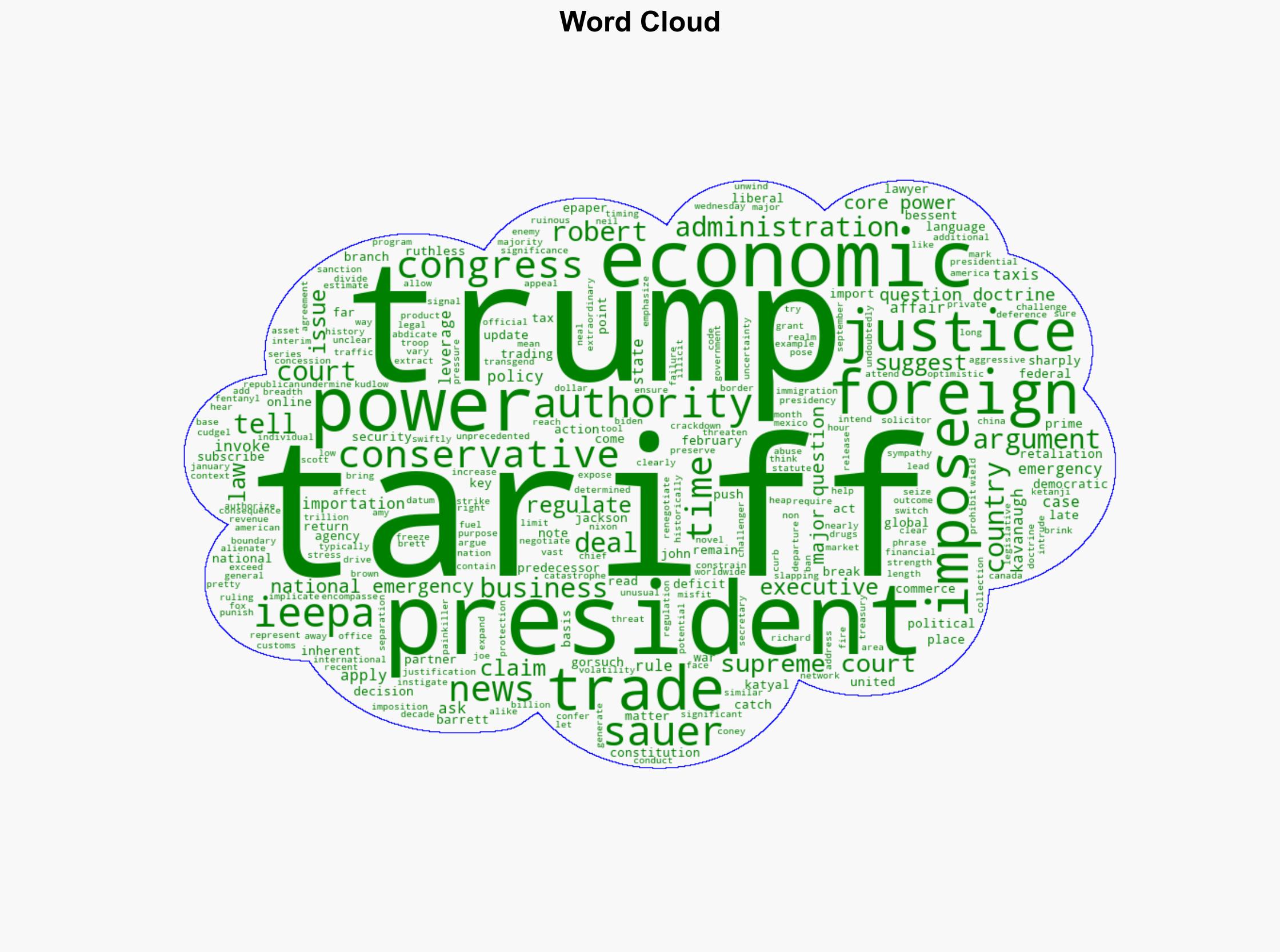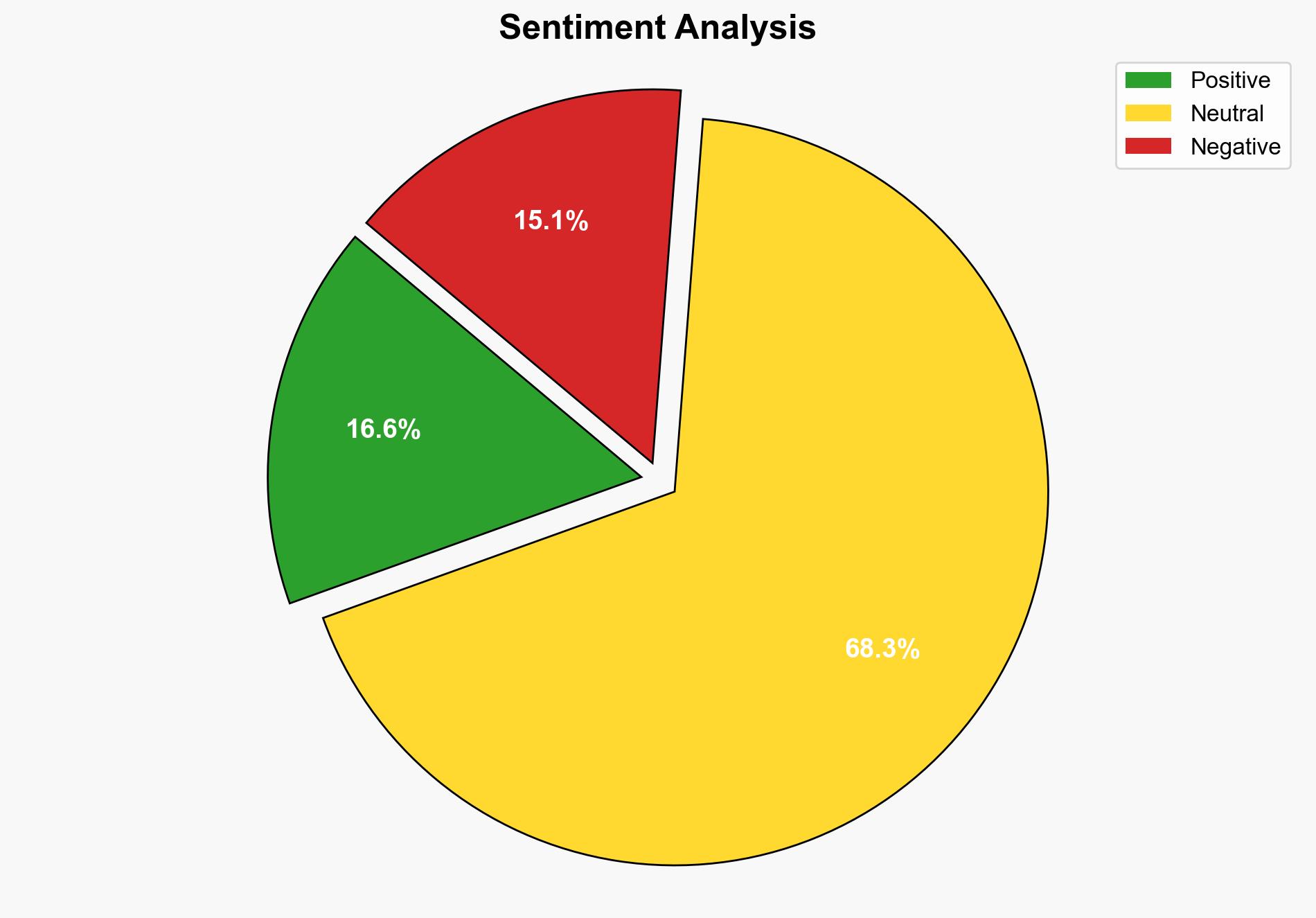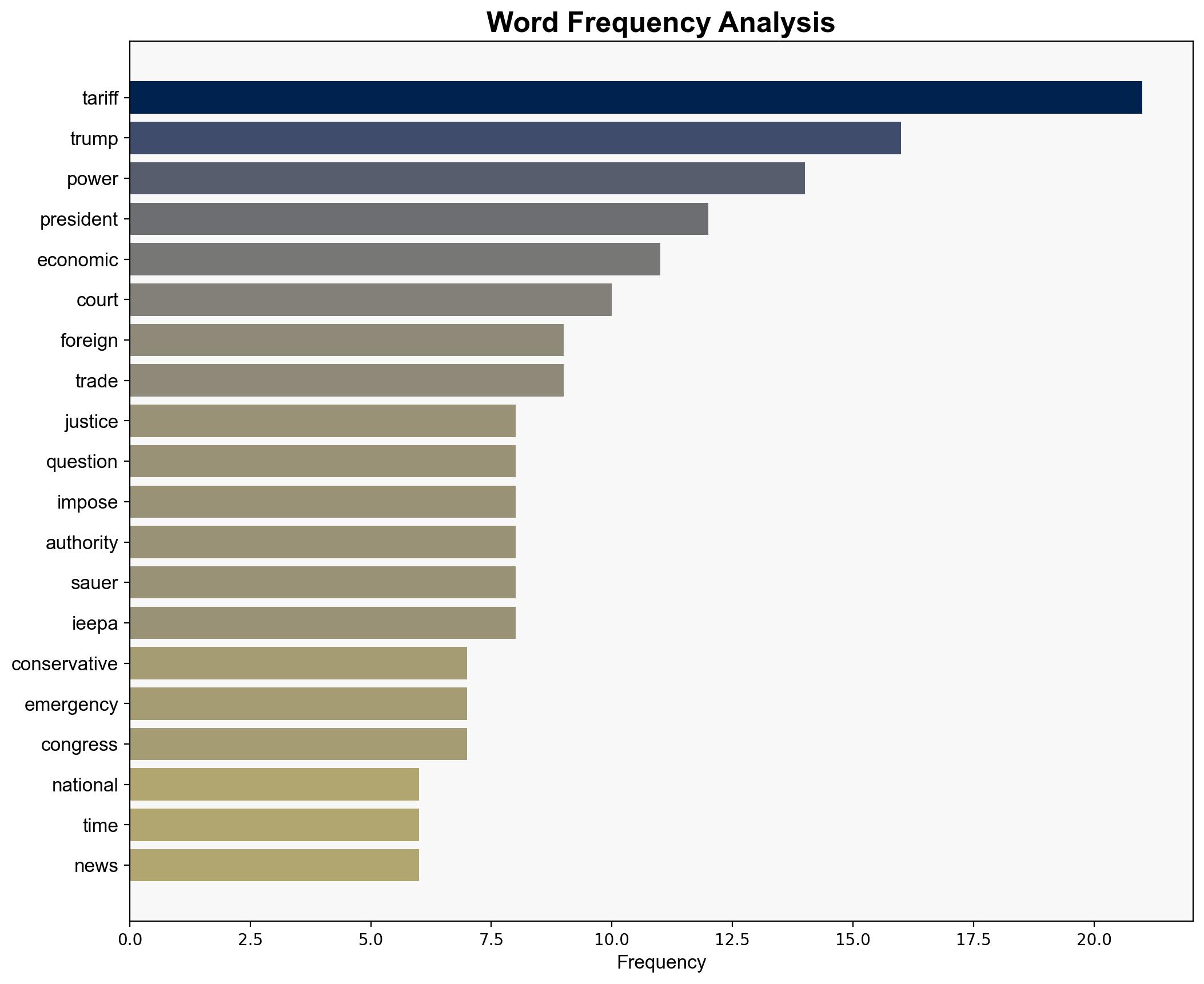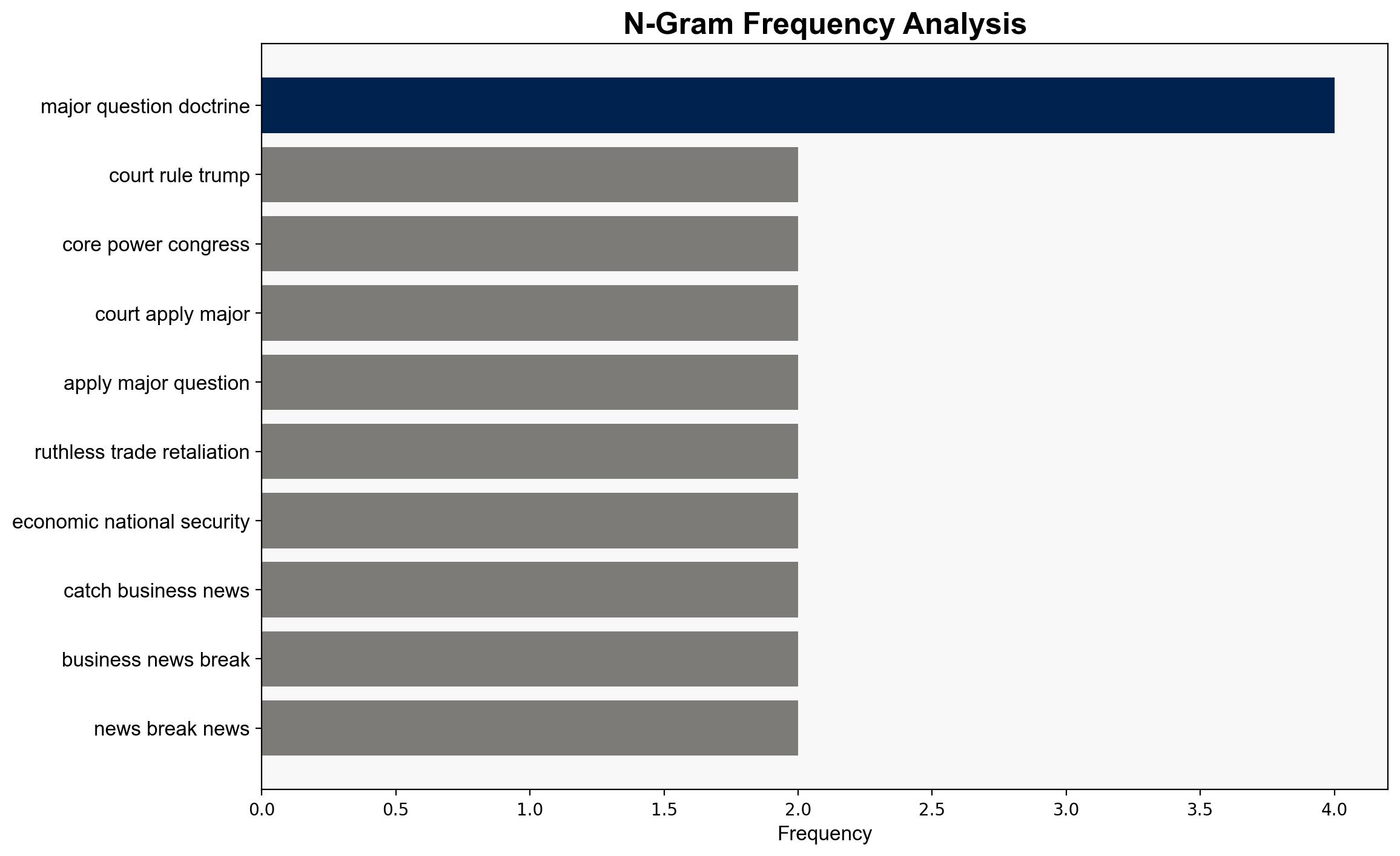US Supreme Court casts doubt on legality of Trump’s global tariffs – The Times of India
Published on: 2025-11-06
Intelligence Report: US Supreme Court casts doubt on legality of Trump’s global tariffs – The Times of India
1. BLUF (Bottom Line Up Front)
The Supreme Court’s deliberation on the legality of Trump’s global tariffs reflects a significant judicial challenge to the executive’s use of emergency powers for economic purposes. The most supported hypothesis is that the Court may limit the executive’s authority to impose tariffs under national emergency claims, given the emphasis on congressional power over tariffs. Confidence level: Moderate. Recommended action: Monitor the Court’s decision timeline and prepare for potential shifts in US trade policy.
2. Competing Hypotheses
1. **Hypothesis A**: The Supreme Court will rule against the Trump administration, reinforcing the constitutional authority of Congress over tariffs and limiting the executive’s use of emergency powers for economic measures.
2. **Hypothesis B**: The Supreme Court will uphold the Trump administration’s tariffs, allowing the executive branch to continue using national emergency declarations to influence trade policy.
Using ACH 2.0, Hypothesis A is better supported due to the conservative justices’ emphasis on congressional authority and the major question doctrine, which suggests skepticism about the executive’s expansive use of power without clear congressional authorization.
3. Key Assumptions and Red Flags
– **Assumptions**: Hypothesis A assumes the Court will prioritize constitutional checks and balances over executive flexibility. Hypothesis B assumes the Court will defer to the executive’s discretion in foreign policy matters.
– **Red Flags**: Potential bias in interpreting justices’ questions as indicative of their final decision. Lack of clarity on how the Court will apply the major question doctrine.
4. Implications and Strategic Risks
– **Economic**: A ruling against the tariffs could destabilize current trade agreements and impact US economic leverage.
– **Geopolitical**: Changes in US tariff policy may alter international trade dynamics and affect relations with key trading partners.
– **Legal**: The decision could set a precedent for future executive actions under national emergency claims.
5. Recommendations and Outlook
- Monitor the Supreme Court’s decision closely to anticipate shifts in trade policy.
- Engage with trade partners to prepare for potential changes in tariff structures.
- Scenario-based projections:
- Best: Court upholds tariffs, maintaining current trade leverage.
- Worst: Court rules against tariffs, leading to economic uncertainty and renegotiation of trade deals.
- Most Likely: Court imposes limits on executive power, requiring clearer congressional authorization for future tariffs.
6. Key Individuals and Entities
– John Roberts
– Amy Coney Barrett
– Ketanji Brown Jackson
– John Sauer
– Scott Bessent
7. Thematic Tags
national security threats, economic policy, judicial review, US trade policy





